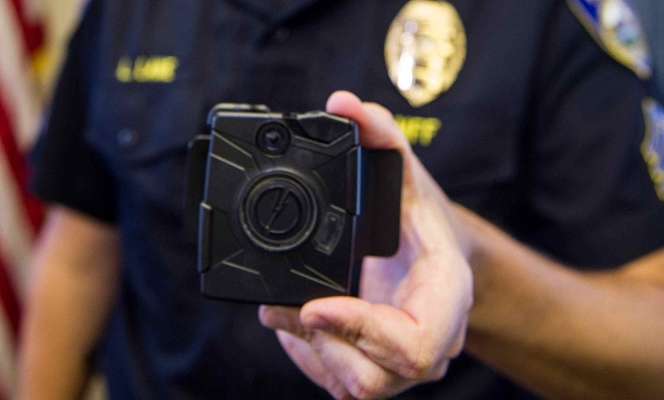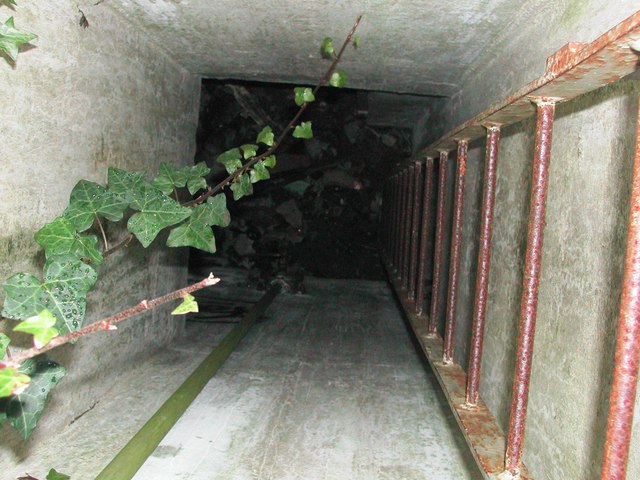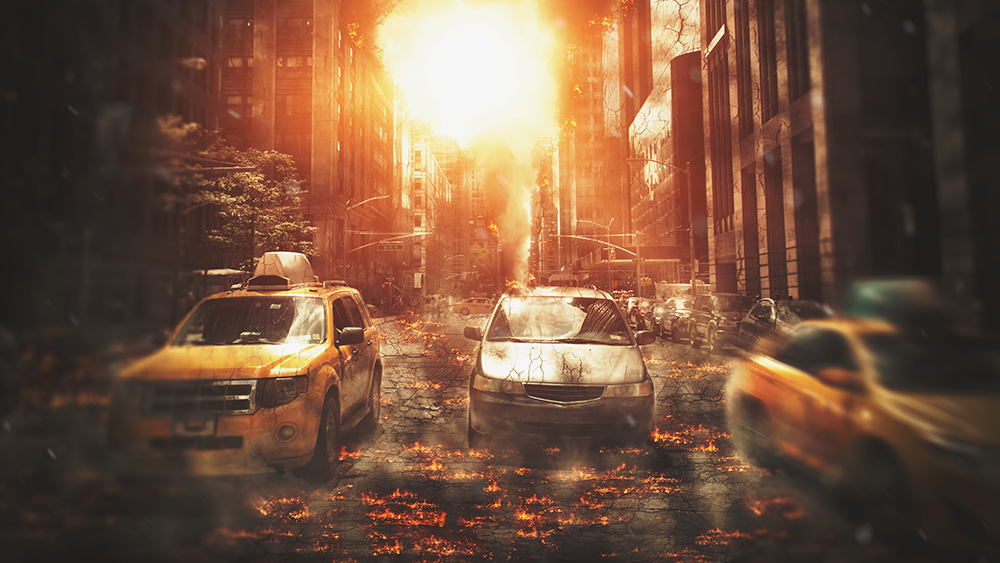“Privacy apocalypse” averted… for now: California bans the use of facial recognition tech on recordings from police officer cameras
09/20/2020 / By Cassie B.

California may have a lot of questionable laws on its books, but there’s one that is worthy of applause. It prohibits the use of facial recognition technology in recordings that are made by police officer cameras.
Facial recognition is a technology that works by matching the real-time images of a person to a previous photograph of the individual. It is based on the fact that everyone’s face has roughly 80 unique nodal points in the areas of the nose, mouth, cheeks and eyes that can be used to distinguish people from one another.
A digital video camera is used to measure the distance between these points on a person’s face. It includes measurements of the depth of a person’s eye sockets, the distance between their eyes, the shape of their jawline and the width of their nose, among others. This information is used to create a unique numerical code that could be matched to a code that was taken from a previous photo.
In March, Washington became the first state in the nation to legalize the use of facial recognition among law enforcement agencies and other state agencies. The software had already been used at the county and city level prior to the new law there. However, facial recognition can only be used in certain cases in the state, such as finding missing people or identifying dead bodies. Agencies will be required to file a notice of intent before using it as well as an accountability report.
Regarding the Washington move, the American Civil Liberties Union said that instead of safeguarding the use of facial recognition, it threatens to legitimize expanding its use. ACLU Project Manager Jennifer Lee said the law contains language allowing agencies to use facial recognition to deny people basic necessities and other essentials, such as housing, food, water and health care.
Privacy advocates praise CA bill
Privacy advocates expressed relief that the California bill was signed into law by Governor Gavin Newsom. It pertains not only to facial recognition but also biometric surveillance in general, such as gait analysis using footage that could be collected from body cam video footage.
The bill states: “The use of facial recognition and other biometric surveillance is the functional equivalent of requiring every person to show a personal photo identification card at all times in violation of recognized constitutional rights. This technology also allows people to be tracked without consent.”
The move came not longer after the ACLU carried out a study of facial recognition that demonstrated how an Amazon program mistakenly identified more than two dozen California lawmakers as criminals.
A similar ban was instituted months earlier by San Francisco on the government’s use of facial recognition for surveillance, and several other American cities have done the same.
China takes the opposite view of facial recognition technology, embracing it fully and using it to track its citizens. It is also used to create social scores that give those who obey the CCP certain perks in their daily lives and restrict the movement and freedoms of those whose scores are lower.
Unfortunately, California’s new law only applies to the use of this technology by law enforcement, not the private sector. Nevertheless, it is a step in the right direction, which is a lot more than we can say about many of the other laws coming out of California.
Sources for this article include:
Submit a correction >>
Tagged Under:
body cams, California, China, cyber way, dangerous tech, Facial recognition, facial recognition technology, glitch, police state, privacy, surveillance
This article may contain statements that reflect the opinion of the author
RECENT NEWS & ARTICLES
COPYRIGHT © 2023 Apocalypse.news
All content posted on this site is protected under Free Speech. Apocalypse.news is not responsible for content written by contributing authors. The information on this site is provided for educational and entertainment purposes only. It is not intended as a substitute for professional advice of any kind. Apocalypse.news assumes no responsibility for the use or misuse of this material. All trademarks, registered trademarks and service marks mentioned on this site are the property of their respective owners.
















